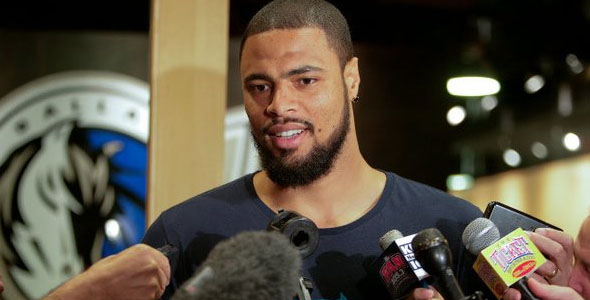
People often stack up Jimmy Butler’s tenacious approach to defense alongside Tom Thibodeau’s maniacal approach to coaching. And where some players might try to separate themselves from such a comparison, Butler is leaning into it as a member of the Minnesota Timberwolves.
As he told The Vertical’s Shams Charania:
“These young guys do listen, but it’s going to be a process. I’m new, and Andrew [Wiggins], KAT [Karl-Anthony Towns] have been here. I can understand when someone else is coming in, and the culture is really going to change. I expect the same thing that Thibs expects, and we both do not expect to lose on any night, in anything. I’m another version of Thibs – I’m going to get his point across, the same way he’s getting it across, except I won’t be using as much cuss words and I won’t be yelling.”
This holds true for most good star-to-coach relationships. A team’s leader should, ideally, be the conduit between the coach’s instructions and his teammates—the lone figurehead in the locker room that can relate to both sides. That is no doubt Butler’s role in Minnesota. The Timberwolves didn’t have someone like him last year, and no matter how good Andrew Wiggins or Karl-Anthony Towns gets, they’re still a little too young to thrive amid that balancing act.
At the same time, Butler seems to also be admitting that him and Thibodeau are, essentially, the same person. They both care so much and expect everyone to fall in line. They revel in the work, no matter how long it takes.
It will be interesting to see how this plays with the Timberwolves’ youngings. Will they respond to Butler’s Thibs-esque attitude? Is he actually more understanding, more adept at playing both sides of the fence, than he lets on in some interviews? Will he ruffle feathers or step on toes? Is there a chance he turns Wiggins and Towns into competitive workaholics like him?
The Timberwolves are among the league’s most fascinating teams after a busy offseason, and Butler’s leadership style, and how it affects the kiddies around him, may play the biggest role in determining how much of a success this experiment becomes.



















